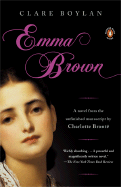
The story begins when a young girl, Matilda Fitzgibbons, is dropped off at a boarding school by her uncle. The three Wilcox sisters who run the school are thrilled as she is dressed in very expensive clothes, and they are in need of some extra income to keep their fledging girls school in operation. After attempting to write to the uncle for payment, the sisters discover that he has given them a false address. Matilda is abandoned at the school where the Wilcoxes strip her of her clothes and treat her cruelly.
Two people of the town become interested in Matilda's plight, a widow named Mrs. Chalfont and a bachelor named Willie Ellin. Mrs. Chalfont opens her home to Matilda while Mr. Ellin seeks to uncover the mystery of her abandonment. Matilda can not provide the key to the mystery as she has lost her memory. She does eventually remember that Emma is her real name. Emma (no longer Matilda) runs away to London in pursuit of her history, leaving the childless widow grieving her absence. Mr. Ellin continues the search for Emma's uncle. The second half of the story takes place primarily in the slums of London revealing the poverty, prostitution, and crime of the time. (These sections reminded me more of Dickens than C. Bronte.) There are several coincidences that connect all of the main characters to Emma in the end.
Much like Jane Eyre, Emma has an independent spirit and a strong amount of common sense. She struggles to make it in the grim streets of London and uses her cleverness to avoid the workhouses. Forgiveness and redemption are also themes of Emma Brown as several of the characters struggle to overcome their unfortunate pasts. While Jane is the only narrator in Jane Eyre, there are several different narrations in Emma Brown. A few times these switches in POV were confusing. However, I loved seeing the story from the perspectives of the various characters and how their pasts influenced the way they treated Emma.
I highly recommend this book. I didn't feel as if I was reading a Charlotte Bronte novel and with the exception of the first couple of chapters, I wasn't. It was very courageous of Clare Boylan to finish the novel of such a beloved author. Many reviews of this book have a "How dare you?" attitude toward Boylan. I say, "How daring of you! Bravo!"

